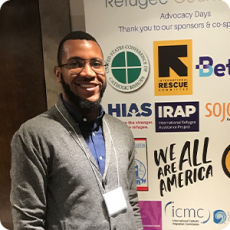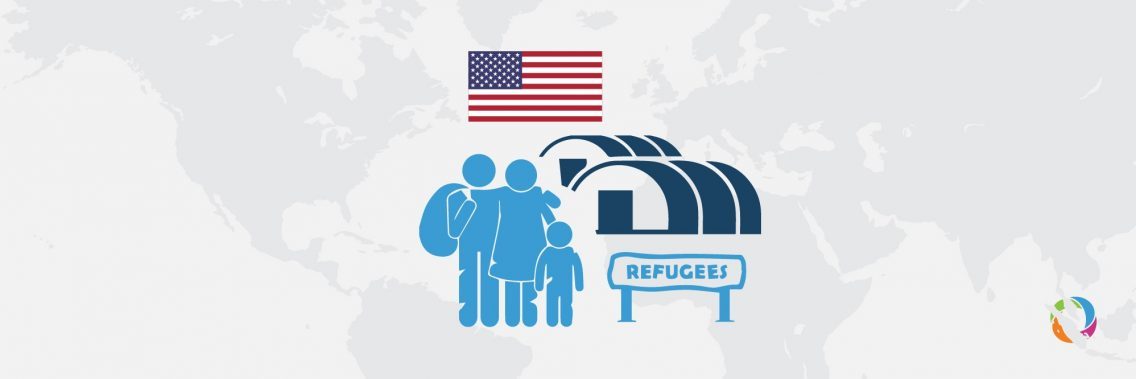The Trump administration has announced plans to admit the lowest number of refugees in US history, setting a cap of 18,000 people for the fiscal year 2020. Last year, the Trump administration set the cap at 30,000 – which at the time was historically low, and a significant reduction from the 110,000 refugees allowed during Barack Obama’s final year in office. How will Trump’s policies regarding migration and asylum seekers affect refugee streams to the US as well as refugee streams in other parts of the world? We addressed this question to several international experts in migration and refugee policies.

“The Congolese and Burmese populations will be deeply impacted by the new policy, and such populations made up more than half, around 59%, of the overall refugee arrivals during the fiscal year 2019 in the US. Refugees who are currently in the pipeline to arrive in the US are in limbo, and I can only imagine the fate of those who wish to apply to enter the US Refugee Admissions Program (USRAP). The immediate implication of the total collapse of US’ resettlement sector – the closure of offices and staff layoffs meaning that refugee clients will lose the services they expect and refugees who have been in the US for years are now unable to bring their loved ones to the US – should not be mentioned without questioning the US’ foreign policy strategy as a result of this policy.”

“The virtual closure of US borders to asylum-seekers around the world has the immediate effect of shunting refugees into countries that cannot protect them, due to a lack of political will or infrastructure, or both. A stark example of this growing humanitarian crisis is playing out on the US border with Mexico, where large numbers of refugees are crowded into makeshift camps with little or no ability to make asylum claims in the United States. In addition to those stranded in Mexico, numerous other asylum-seekers are being forcibly returned from the US or Mexico to third countries such as Guatemala, El Salvador, Haiti or Honduras where they face isolation, violence and even death. These policies are trapping refugees indefinitely in isolated diasporas in many global regions, without access to protection mechanisms, shelter, health care, nutrition, education and income.”

“As the US withdraws itself from being a lead and a voice for the global humanitarian cause, other states and countries will not catch up with the growing demand for resettlement worldwide. Even for countries such as Canada who are now increasing their quotas cannot catch up and fill the cuts in US quotas. An ongoing move to ban asylum-seekers and potential refugees from seeking asylum in the USA is a testimony of how the Trump administration is making it difficult for people to find a safe haven within its borders prompting yet another wave of unlawful secondary movements out of designated refugee settlements.”

“The sharp drop in the number of resettled refugees has led to the closure of hundreds of resettlement offices around the country whose job was to help refugees settle, connect to services, find opportunities and integrate. It is well documented that refugees are contributing immensely to the American economy, families, and communities. Globally, this step further undermines an already fragile responsibility-sharing mechanism. Where the US led by example, other countries have followed suit and have reduced their resettlement intake”.

“If the USA admits the number of refugees below 20,000 then it will result to humanitarian crisis in refugee situations where the only solution is resettlement. Refugee assistance in refugee camps will be costly, longer or endless. The number of refugees who will become future agents of change, or ambassadors for international understanding, peace and reconciliation, political reform, good governance and humanitarian assistance will be considerably reduced. The USA will lose its international standing in the arena of refugee protection and humanitarian assistance”.

“The policies that are currently being developed in the United States regarding asylum seekers (and migrants in general) threaten to severely reduce resettlement numbers to a historic low. Regulating and monitoring the refugee system, with credible annual caps and a reliable channel for asylum seekers to seek protection, helps create a dependable process through which the United States can assist in addressing worldwide crises. And it can even help other nations follow suit, especially in Europe, aiding other countries to set refugee quotas and spreading the responsibility among wealthy, stable nations.”
Check all the available news about refugees on the DevelopmentAid platform here.

